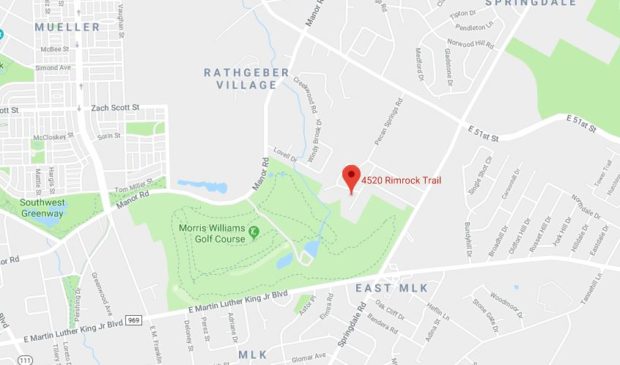East side subdivision evokes legacy of racist deed restrictions
Monday, June 25, 2018 by
Jack Craver There wasn’t much the Planning Commission could do about the subdivision sought by the the owner of an acre of land at 4520 Rimrock Trail, near the Morris Williams Golf Course. The commission was legally required to approve the owner’s request to subdivide the lots, which complied with existing zoning.
That detail didn’t stop neighbors from coming to City Hall to display their displeasure at the planned development, which will include four houses and four accessory dwelling units (or granny flats) on two lots that the neighbors insisted should only accommodate one residence each.
The half-a-dozen speakers and more than 20 people who submitted written comments opposing the subdivision implored the city to protect the neighborhood’s low-density character and bemoaned the prospect of increased traffic that eight new residences might bring.
Some of the neighbors speaking in opposition were newcomers – two arrived only months ago – who said they chose the area because of the low-density feel.
Gari Gardner, however, said she had bought her home more than 40 years ago.
“It is wrong to attempt to ruin the integrity of our neighborhood because of pure greed and with the desire to subdivide lots and build duplexes or four houses,” said Gardner. “This anthill density is unwanted.”
“I haven’t talked to a single person who is OK stomping on this historical, full-of-children area,” said Elizabeth Keating.
“There are no sidewalks and we like it that way,” Keating later added.
The neighbors also highlighted deed restrictions on the properties that date to 1949, put in place by the developers who built the original subdivision. Among other things, they bar more than one house per lot, said Gardner.
Commissioner Tom Nuckols said that the commission did not have any power to enforce deed restrictions; the only avenue for enforcing them would be to sue the developer in district court.
Gardner was well aware of the legal avenues: She and others sued to force the removal of a mobile home from a neighborhood property 20 years ago, she said.
Commissioner Karen McGraw said she sympathized with the neighbors’ complaints but acknowledged the commission was powerless to block the subdivision. The new, smaller lots would still be much larger than the minimum (5,750 square feet) for its zoning category, Family Residence (SF-3).
If they want to prevent higher-density uses from coming into the neighborhood, said McGraw, they should try to get new zoning. But their prospects weren’t good: “The city doesn’t like doing that now because they’re wanting the density.”
Commissioner Angela De Hoyos Hart asked that the deed restriction be put up on the projector so she could highlight a provision from the 70-year-old document: “Properties should not be used or occupied at any time by persons other than strict white Caucasian race.”
Such clauses in Austin deed restrictions are common; they were overridden by federal civil rights laws in the 1960s. If anything, what is notable about the deed restriction in this case is that it relates to a property in East Austin, where the city’s segregationist zoning code largely forced African-Americans and Latinos to live.
“I think this is a wonderful educational opportunity when we talk about institutional racism and how deed restrictions were originally formed as a way to keep people of color out of certain communities,” said Hart.
McGraw issued a defense of deed restrictions, acknowledging that many were racially motivated but that “there were many other reasons for deed restrictions and many of them are still valid.”
Referencing the racist clauses, McGraw said, “I don’t think any of us would support that –”
“Agree to disagree,” interjected Hart.
“Whatever, good lord,” whispered McGraw in a comment that was likely caught by a colleague’s microphone.
Commissioner Greg Anderson said that he wished there were more housing on the lots.
“Breaking up an acre of land for more homes isn’t greed,” he said. “That’s just the desperate need for housing in our community.”
The commission voted unanimously to approve the subdivision.
Chair Stephen Oliver granted Gardner’s plea to address the commission after the vote. Gardner, ostensibly responding to Hart’s comment on deed restrictions, noted that two of the plaintiffs who forced the removal of the mobile home two decades ago were black.
“Don’t think that it’s a white-only neighborhood,” she said. “Because it’s not. It hasn’t been for a long time.”
The Austin Monitor’s work is made possible by donations from the community. Though our reporting covers donors from time to time, we are careful to keep business and editorial efforts separate while maintaining transparency. A complete list of donors is available here, and our code of ethics is explained here.
You're a community leader
And we’re honored you look to us for serious, in-depth news. You know a strong community needs local and dedicated watchdog reporting. We’re here for you and that won’t change. Now will you take the powerful next step and support our nonprofit news organization?




